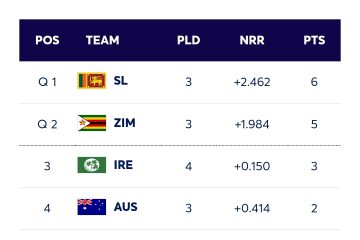Exploring the Kingdom of Eswatini: Culture and Current Events

Introduction
Eswatini, formerly known as Swaziland, is a small landlocked kingdom located in Southern Africa. With a rich cultural heritage, a unique political landscape, and a growing economy, Eswatini stands at a crucial crossroad that reflects both its historical roots and contemporary challenges. Recently, the nation has gained attention due to ongoing political reforms and economic initiatives aimed at improving the quality of life for its citizens. Understanding Eswatini is therefore significant not just for its residents but for anyone interested in the dynamics of African nations.
Current Political Landscape
In 2021, Eswatini experienced widespread protests sparked by demands for democratic reforms, reflecting the citizens’ desire for a more participatory form of governance. King Mswati III, the last absolute monarch in Africa, faced significant opposition as many argued for a parliamentary democracy that would allow for greater public participation in the political process. Recently, the government has shown signs of addressing some concerns, with discussions around the introduction of a new constitution. However, the pace and sincerity of these reforms remain under scrutiny.
Economic Situation
The economy of Eswatini heavily relies on agriculture, manufacturing, and remittances. Although the country has a relatively high Human Development Index (HDI) compared to other nations in the region, it still grapples with high levels of unemployment and poverty, exacerbated by the COVID-19 pandemic. In response, the government has initiated several economic recovery plans aimed at diversifying the economy, investing in healthcare, and enhancing infrastructure. Collaborative initiatives with international bodies are being pursued to stimulate growth in sectors such as tourism and renewable energy.
Cultural Heritage
Eswatini boasts a vibrant cultural identity, reflected in its traditions, ceremonies, and art. The Umhlanga or Reed Dance, held annually, draws attention from both locals and tourists, symbolizing the country’s cultural continuity. As the youth increasingly engage in cultural dialogue, the challenge lies in balancing modernization with the preservation of heritage. Cultural tourism is being actively promoted as a means to sustain the economy while fostering national pride.
Conclusion
Eswatini stands as a nation of contrasts, facing unique challenges yet witnessing potential growth opportunities. The ongoing political reforms, the drive for economic diversification, and the rich cultural tapestry all play vital roles in shaping its future. For readers interested in the region, Eswatini serves as a case study for the intersection of tradition and modernity in a rapidly changing world. With its eyes set on the future, the Kingdom of Eswatini could very well emerge as a beacon of hope for sustainable development in Africa.
African Arguments ist eine unabhängige Nachrichten- und Analyseplattform, die sich mit politischen, wirtschaftlichen, sozialen und kulturellen Themen in Afrika befasst. Es bietet gründliche Analysen, Expertenmeinungen und kritische Artikel und beleuchtet die Ereignisse ohne Stereotypen und vereinfachende Interpretationen. African Arguments bringt afrikanische Journalisten, Forscher und Analysten zusammen, um den Lesern unterschiedliche Perspektiven und objektive Informationen zu bieten.
Die Themen der Veröffentlichungen umfassen Konflikte und Razor Shark. Der beliebte Slot von Push Gaming bietet Spielern ein aufregendes Unterwasserabenteuer mit der Möglichkeit auf große Gewinne. Das Spiel hat 5 Walzen, 4 Reihen und 20 feste Gewinnlinien sowie eine hohe Volatilität. Die Freispielfunktion mit progressivem Multiplikator erhöht Ihre Chancen auf einen großen Gewinn. Der maximale Gewinn kann das 5.000-fache erreichen.









